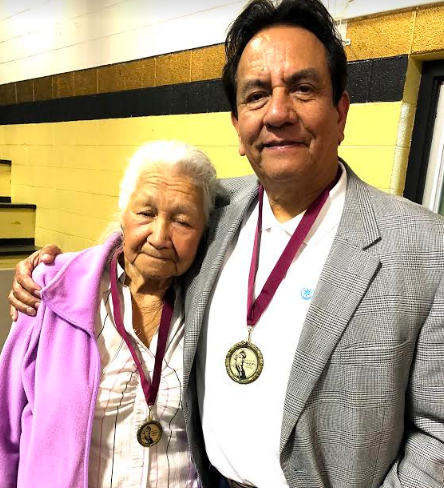
- Details
- By Joe Byrd
By Joe Byrd, Speaker of the Cherokee Nation Council
Opinion. Tribal nations facing the fallout from the pandemic are truly dealing with a Herculean task. The Cherokee Nation has been fortunate in that the Administration, Council, health services team and staff understood early on how important it would be to listen to the scientists and act accordingly.
We took note that so many of our elders were being particularly hard hit by the virus. Over the course of the pandemic, we have lost more than 50 of our first-language speakers, some of whom were National Treasures. A few years back, we made a concentrated effort to document and recognize first-language speakers, and we discovered we only had about 2,500 fluent speakers left.
Once vaccines were made available to the Cherokee Nation, the Council and the Administration worked together to include our first-language speakers and National Treasures in the first tier of our population who would receive the vaccine so that we could further protect our language and culture.
We worked directly with the U.S. Congress once aid packages were being discussed, and, to date, we have served more than 130,000 citizens with direct assistance, not to mention thousands more through other programs and services, including drive-through COVID testing, food distribution events, distance-learning education funding for WiFi hotspots and laptops, and access to PPE and sanitizer in bulk.
We don’t have a Defense Protection Act like that of the federal government, but our Tribe has worked to put our properties and our people to work to mitigate COVID-19 in light of job loss in other sectors. For instance, we used our old Tahlequah casino as a staging and planning area to coordinate food distribution events held throughout the 14-counties. We have developed another property for the sole purpose of manufacturing our own PPE.
We are in Phase 1A of our vaccination rollout, and we have a long way to go before we return to any semblance of normalcy. But I believe in my heart our resiliency will see us through this very dark time in our nation’s history. We will emerge stronger for the experience, despite the devastating losses of our loved ones.
Joe Bryd is a full-blood Cherokee raised in Belfonte/Nicut, Oklahoma and the father of three children, Joseph, Candice and Julia. He is currently serving his 3rd term on the Council of the Cherokee Nation for District #2, Cherokee County. He was nominated as Speaker of the Council in September of 2015. Joe formerly held the position of Chief of the Cherokee Nation and was the first bilingual Chief of the tribe in 200 years. In that capacity, and today, he has diligently worked for preserving Native American sovereignty, rights, culture and furthering educational opportunities.
More Stories Like This
The SAVE America Act Threatens Native Voting Rights — We Must Fight BackThe Presidential Election of 1789
Cherokee Nation: Telling the Full Story During Black History Month
Jesse Jackson Changed Politics for the Better
Native News Online at 15: Humble Beginnings, Unwavering Mission
Help us defend tribal sovereignty.
At Native News Online, our mission is rooted in telling the stories that strengthen sovereignty and uplift Indigenous voices — not just at year’s end, but every single day.
Because of your generosity last year, we were able to keep our reporters on the ground in tribal communities, at national gatherings and in the halls of Congress — covering the issues that matter most to Indian Country: sovereignty, culture, education, health and economic opportunity.
That support sustained us through a tough year in 2025. Now, as we look to the year ahead, we need your help right now to ensure warrior journalism remains strong — reporting that defends tribal sovereignty, amplifies Native truth, and holds power accountable.
 The stakes couldn't be higher. Your support keeps Native voices heard, Native stories told and Native sovereignty defended.
The stakes couldn't be higher. Your support keeps Native voices heard, Native stories told and Native sovereignty defended.
Stand with Warrior Journalism today.
Levi Rickert (Potawatomi), Editor & Publisher
